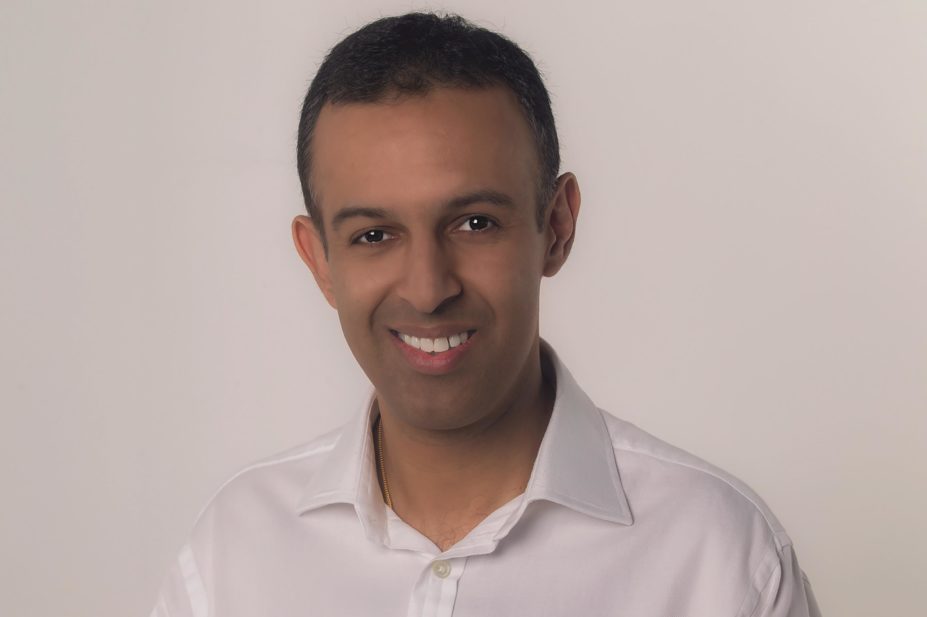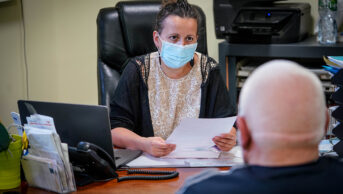
What is your current role and how did you get there?
I am a senior prescribing adviser at Wandsworth Clinical Commissioning Group (WCCG) in London. After I completed my pre-registration training at Boots, I continued working there to gain experience in different roles, including relief pharmacist and store manager. I realised I preferred the clinical aspect of my role to management, so I completed the post-graduate diploma in clinical pharmacy at De Montfort University in Leicester and began the role of professional development pharmacist at Boots.
My experience in community pharmacy equipped me well for an additional role as community pharmacy facilitator
Again, my desire to work more clinically took me from community pharmacy to primary care when I started working as a prescribing adviser at Hillingdon Primary Care Trust (PCT). My experience in community pharmacy equipped me well for an additional role as community pharmacy facilitator for the PCT.
I then progressed to a senior prescribing role and, when the opportunity arose, I took the role of the assistant director of GP commissioning for Hillingdon PCT. After two years, I decided to return to clinical pharmacy by taking on a role as senior prescribing adviser at WCCG.
What are your daily responsibilities?
My daily tasks will vary depending on the projects I am currently involved in and the priorities set by our commissioning agenda. One of my responsibilities is preparing and presenting individual funding request (IFR) drug applications on behalf of WCCG. This involves studying the details of each case and researching the therapeutic condition and drug being requested, including all the trial evidence submitted to support the application. I am a panel member for both the IFR and effective commissioning initiative (ECI) meeting, which considers interventions where a set of criteria must be met, for example, reduction mammoplasty or hair depilation. I am therefore involved in decisions for all funding requests — both drug and non-drug related cases.
I am currently working with GPs and nurses to overcome barriers to optimising and titrating treatment in patients with poorly controlled diabetes
Because I am a member of the Wandsworth diabetes clinical reference group, much of my work centres on helping patients and clinicians manage type II diabetes. For example, I am currently working with GPs and nurses to overcome barriers to optimising and titrating treatment in patients with poorly controlled diabetes by providing local guidelines and being involved in training sessions. Having recently completed a diploma level module on diabetes in primary care at Kings College London, it has been useful to apply this new knowledge to help improve patients’ glycaemic control.
I have also been involved in filming a library of video clips. Each short video aims to answer a specific diabetes-related question. Patients will be able to access all of the videos by visiting a website. GPs will also be able to send patients a link via text message or email so that they can access a cluster of videos that will be of particular relevance to them.
What do you enjoy most about your role, and of what achievement are you most proud?
My role allows me to engage with healthcare professionals across all sectors, including pharmacists, GPs, consultants, specialist nurses and dieticians, and to make a positive impact on patient care. I am fascinated by projects that require overcoming barriers and resistance to change to reach a positive outcome for all parties involved.
I am fascinated by projects that require overcoming barriers and resistance to change to reach a positive outcome for all parties involved
One major project, which is now almost complete, investigated the appropriate use of oral nutritional supplements (ONS) because at WCCG we had a high level of ONS prescribing relative to other CCGs. We wanted to improve practice so we produced local guidelines and undertook a programme of work to review patients receiving ONS and encourage food fortification before the use of supplements. In addition, I organised training for nursing, residential and GP practice staff about adherence to local prescribing guidelines and helped to improve communication between dietitians and GP practices. We have seen a decrease in the volume of prescribing of ONS and reduced wastage without compromising patients’ body weight. This has achieved significant savings in excess of £150,000 on the budget for ONS prescribing.
What kind of opportunities are there for pharmacists to work in primary care?
Pharmacists can choose from a variety of roles in primary care, from clinical roles such as running a pharmacist-led clinic for long-term conditions in a GP practice, to more senior managerial roles such as chief pharmacist of a CCG.
Additionally, GP prescribing support pharmacists provide hands-on pharmaceutical advice, respond to GP queries, conduct clinical audits, manage therapeutic switches and implement local prescribing guidelines.
There is also scope for pharmacists to improve medicines optimisation in care homes by providing training for healthcare staff on medicines administration, undertaking reviews and responding to queries.
What advice would you give to another pharmacist who wanted to go into primary care?
I recommend finding out as much as possible about the roles available. If you are considering moving from another field of pharmacy to primary care, take the opportunity to shadow a colleague to find out if the role is something you are interested in.
Additionally, I suggest undertaking a post-graduate qualification in clinical pharmacy (certificate or diploma) to enhance your clinical knowledge. This knowledge needs to be kept up to date so keep abreast of both local and national guidelines.
There are plenty of opportunities to develop your role as a clinical practitioner in primary care — considering them may make your working life more rewarding. I have recently completed a course to develop my project management skills and my next goal is to become an independent prescriber so that I can run clinics in GP practices.
For me, primary care is a good place to work on different levels within the healthcare agenda – you can equally develop a practitioner role, working with patients on an individual basis, and a more managerial role, influencing the agenda on a population level.


